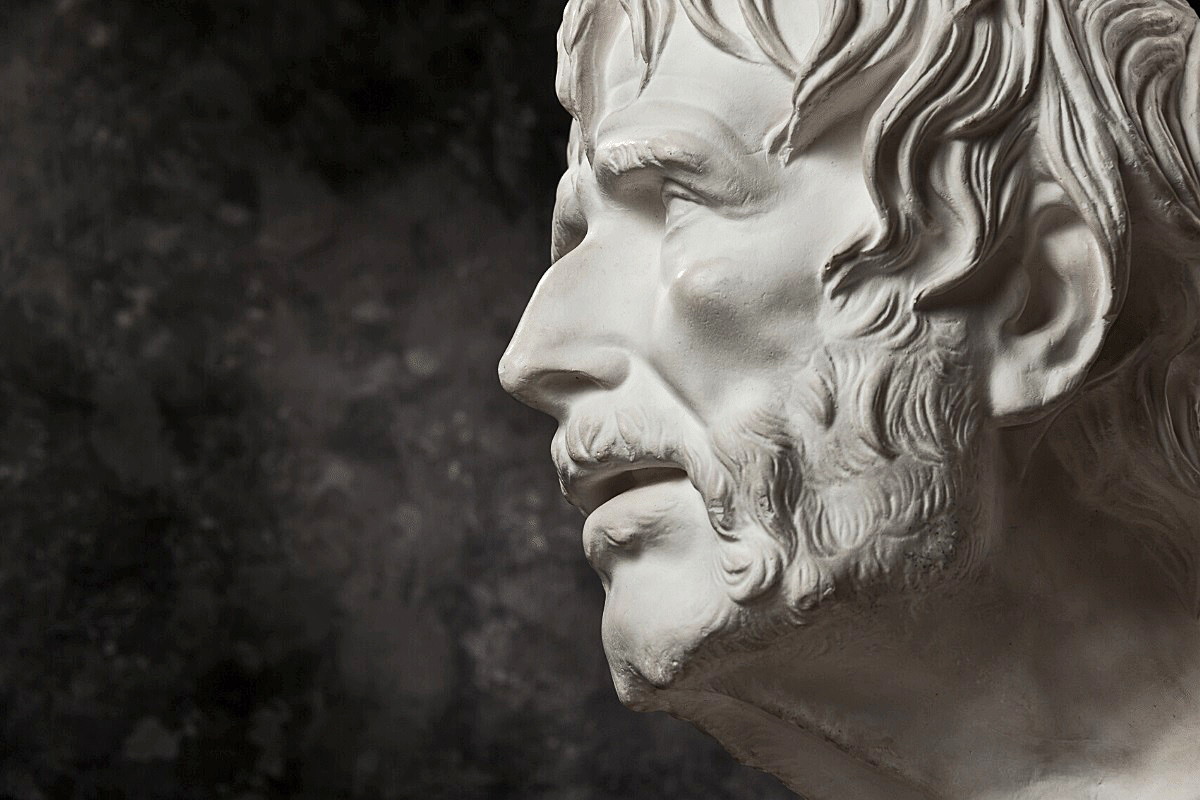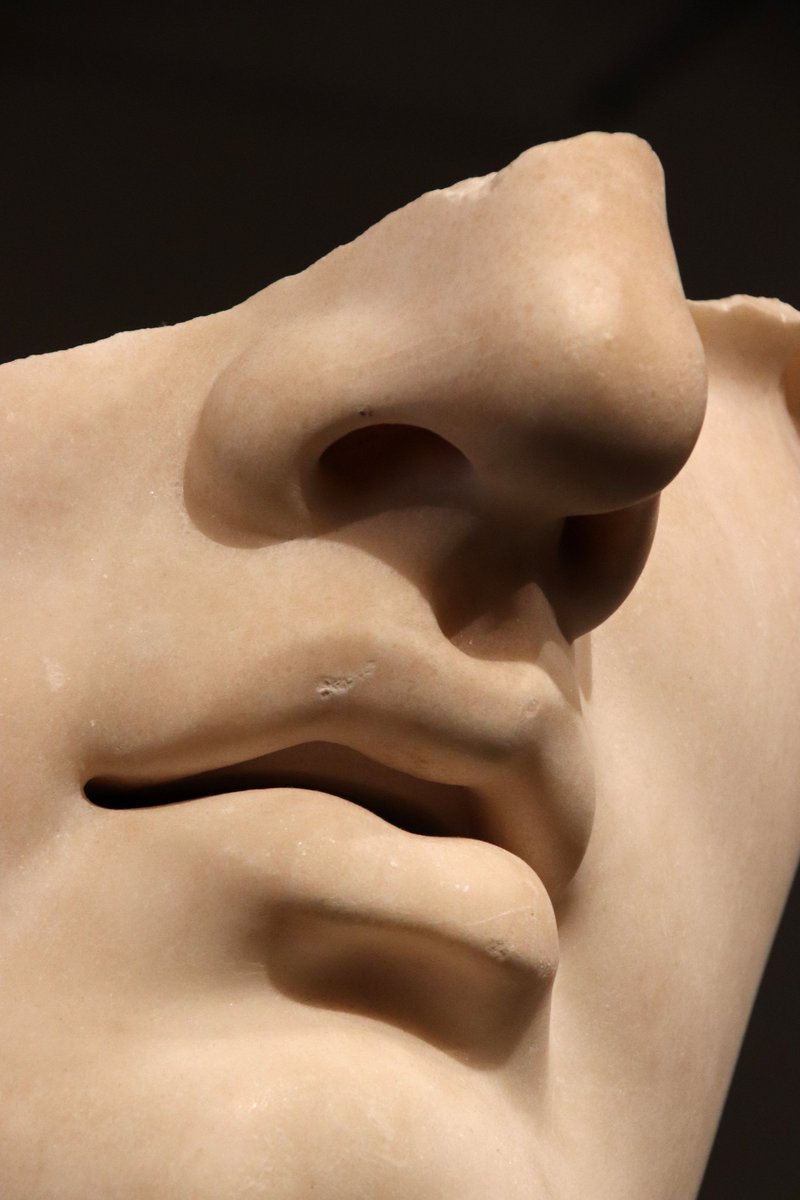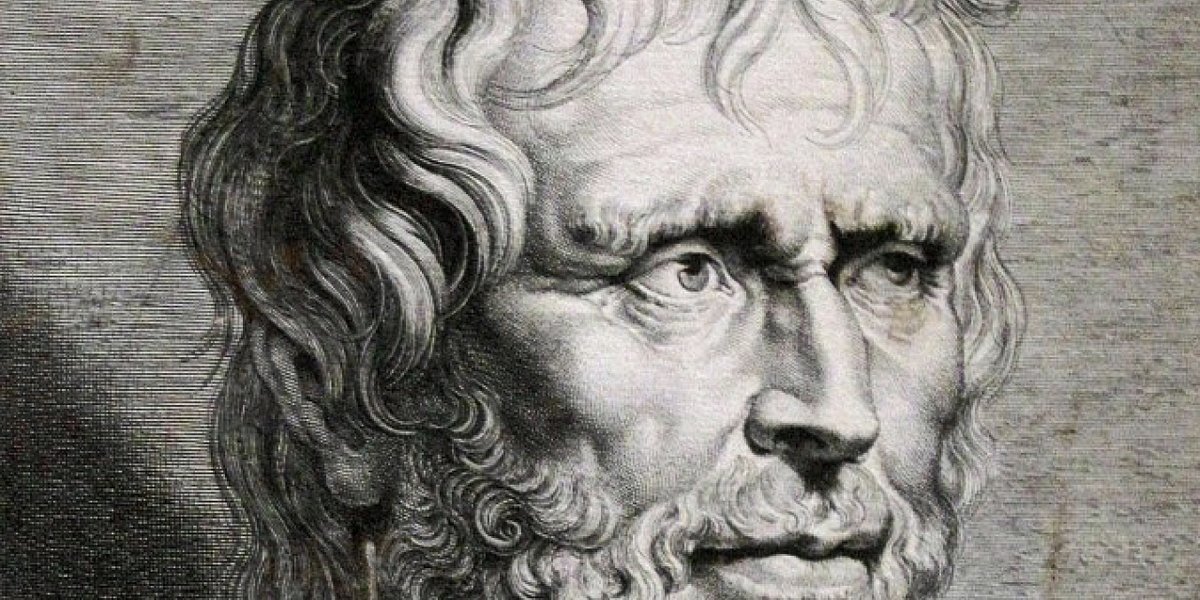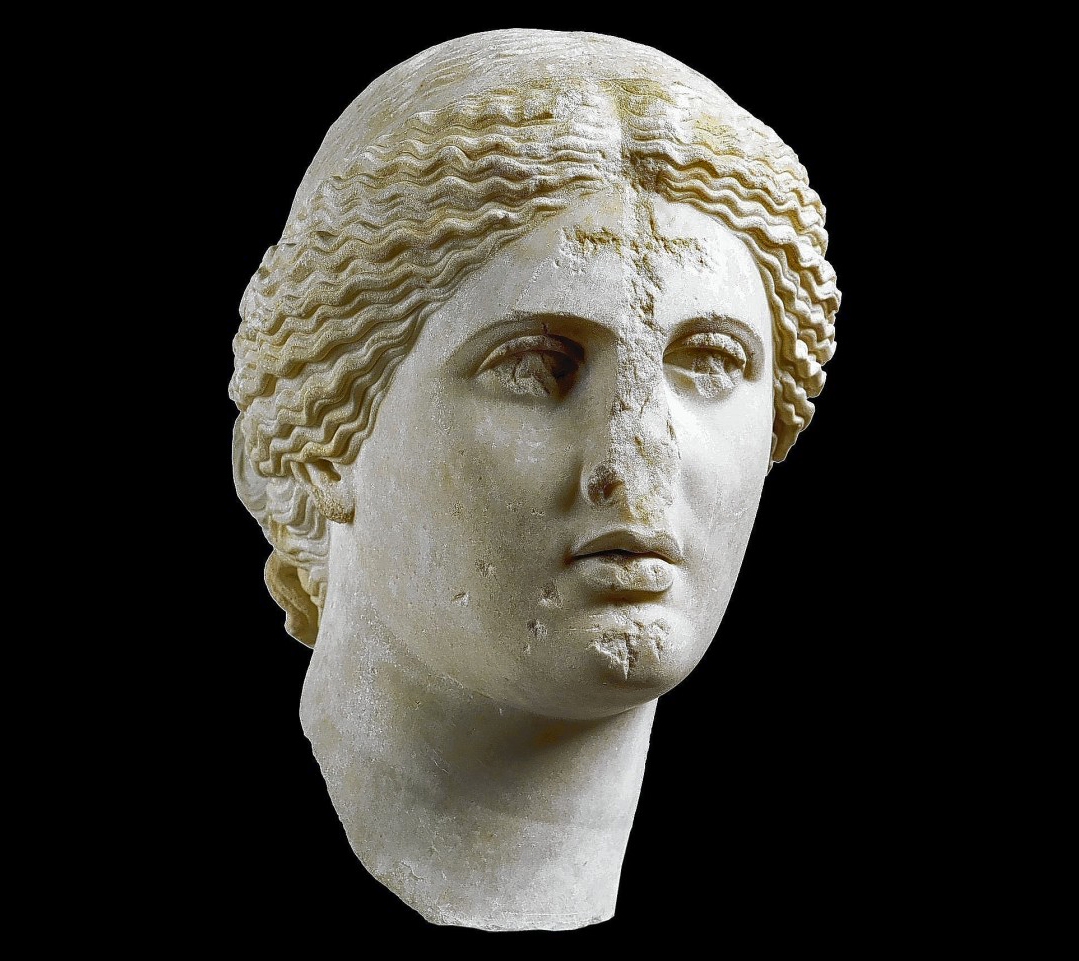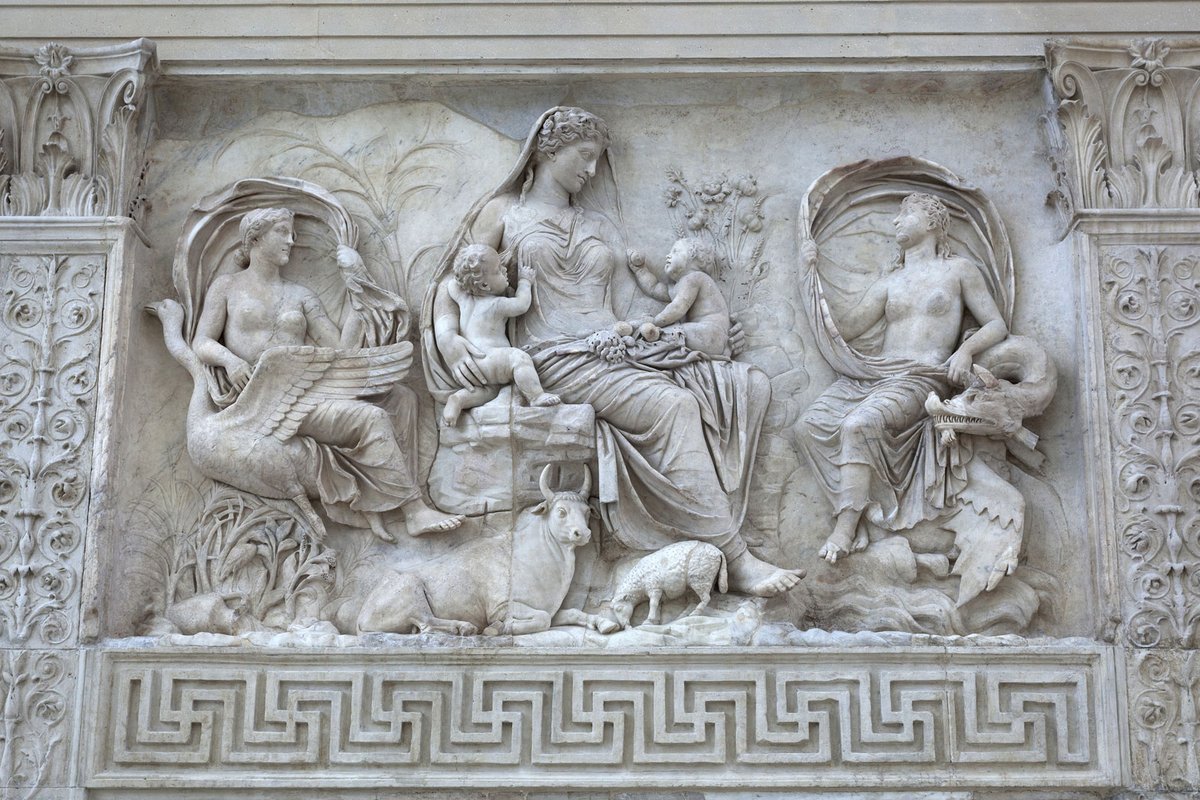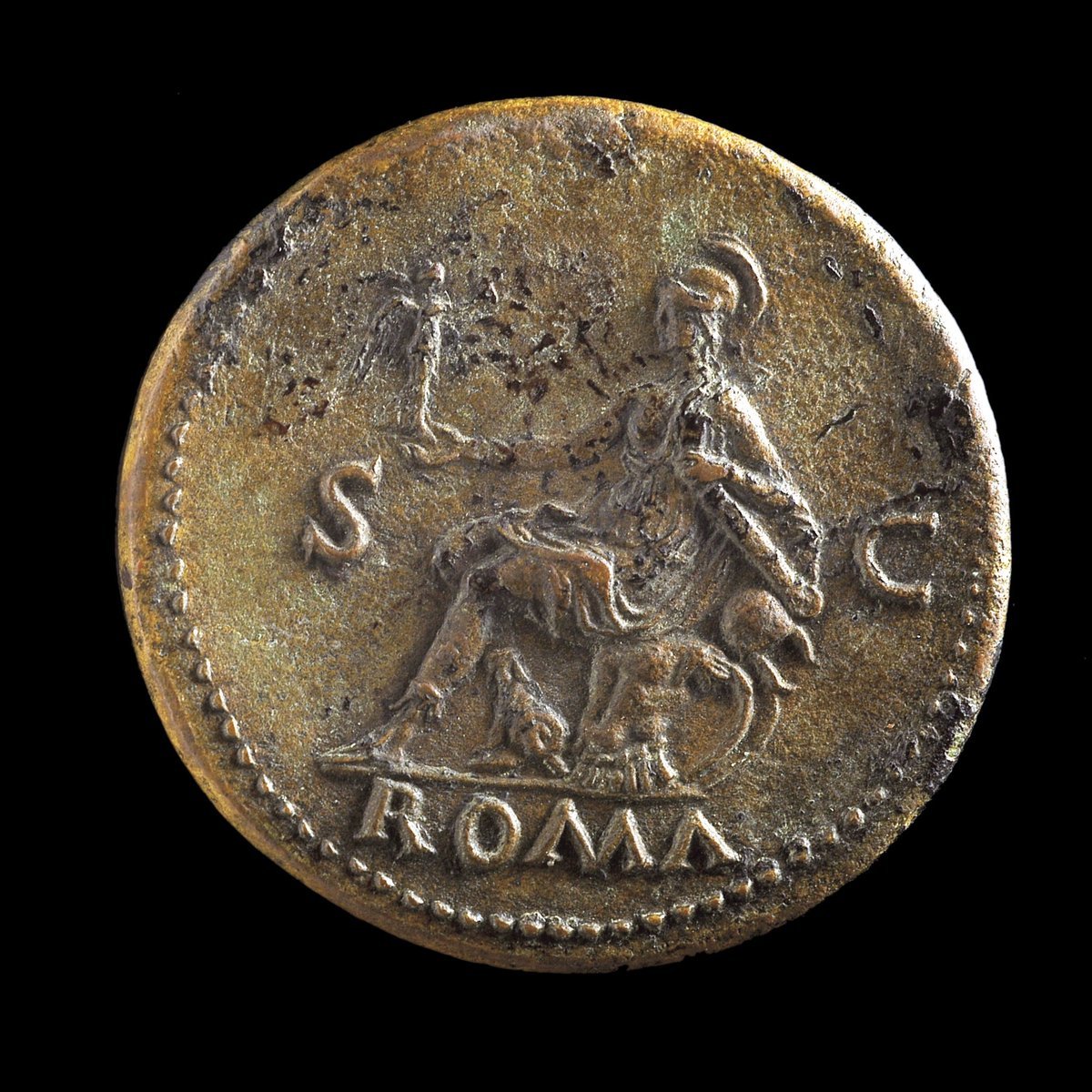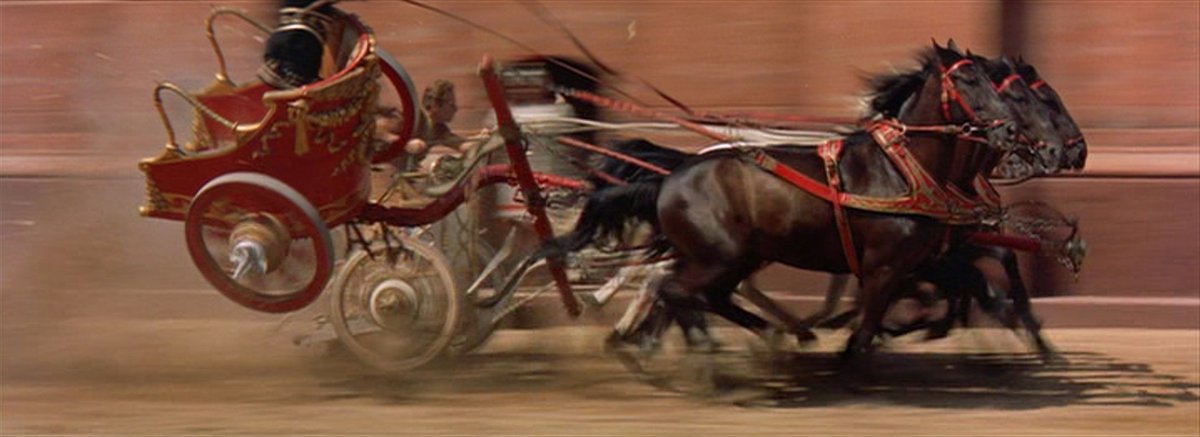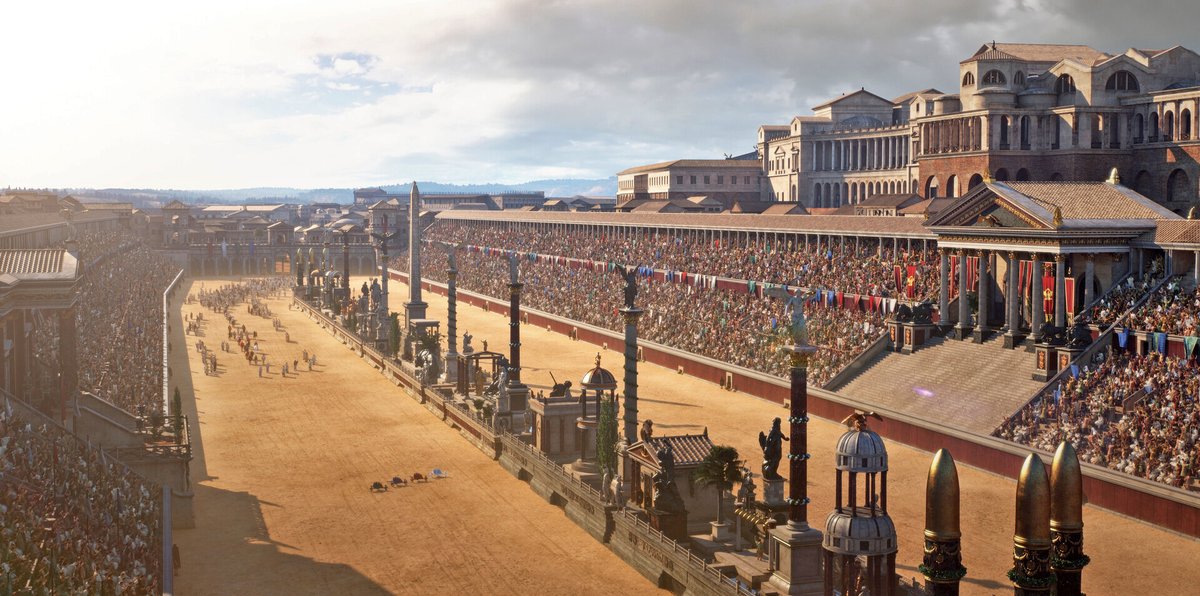
1/4) "His military training gives the Roman soldier a resilient physique but also a resolute spirit. Roman military law means the death penalty for any soldier who abandons his post or even commits a petty crime. But the commanding officers invoke even more fear than the law".. 
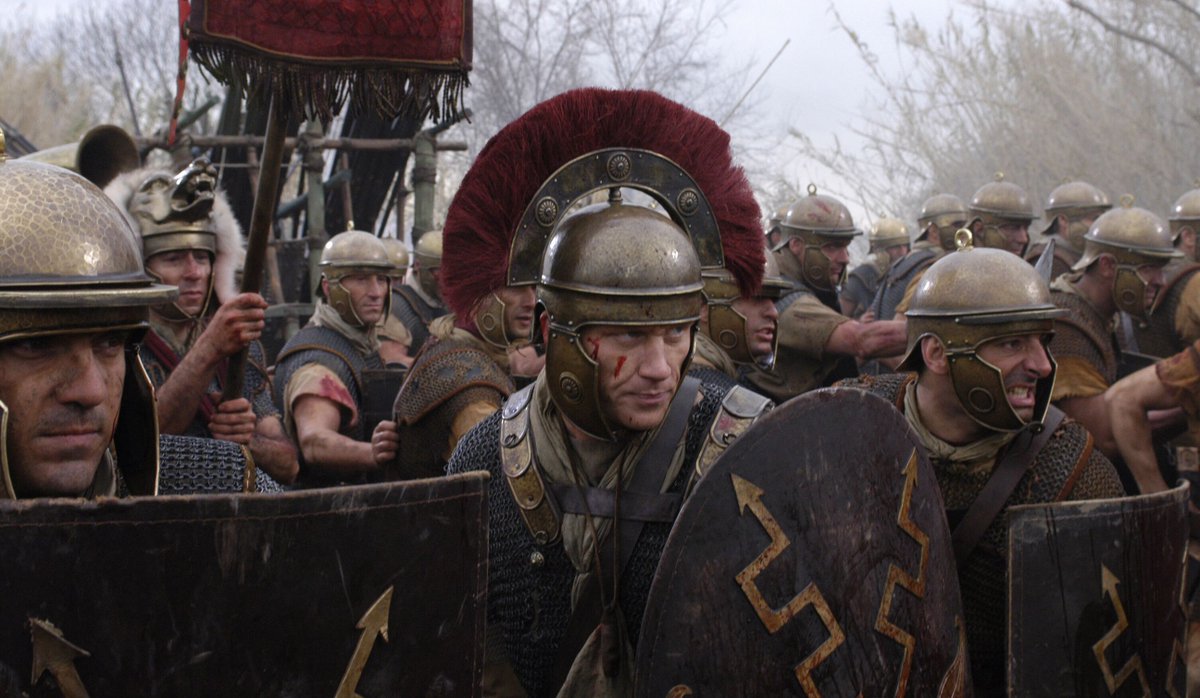
2/4) .."By rewarding the good soldiers they make the punishments for the bad soldiers seem all the worse. Roman troops are so completely obedient to their superiors that they set a good example to all of Rome in peacetime.".. 
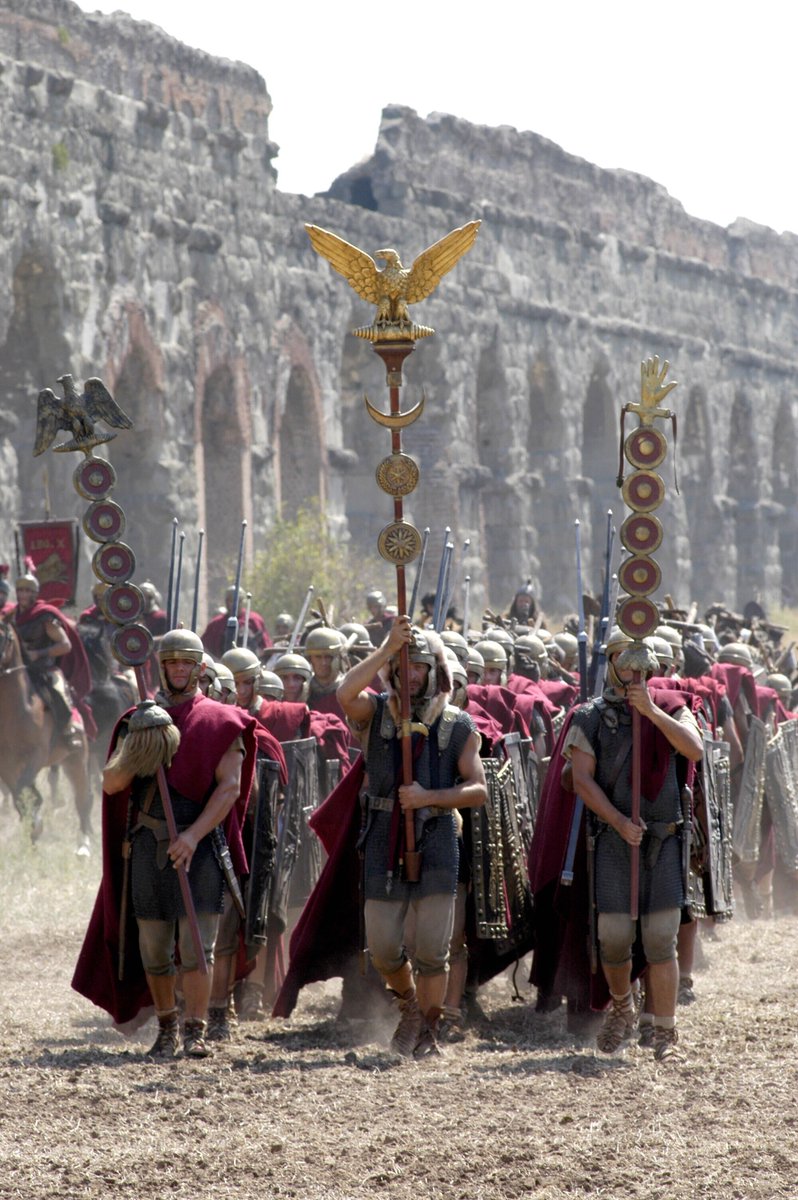
3/4) .."They act as one on the battlefield: so tight in their formations, so adaptable in their manoeuvring, their ears always pricked for orders, their eyes always watching for signals, and their hands always ready for work to be done.".. 
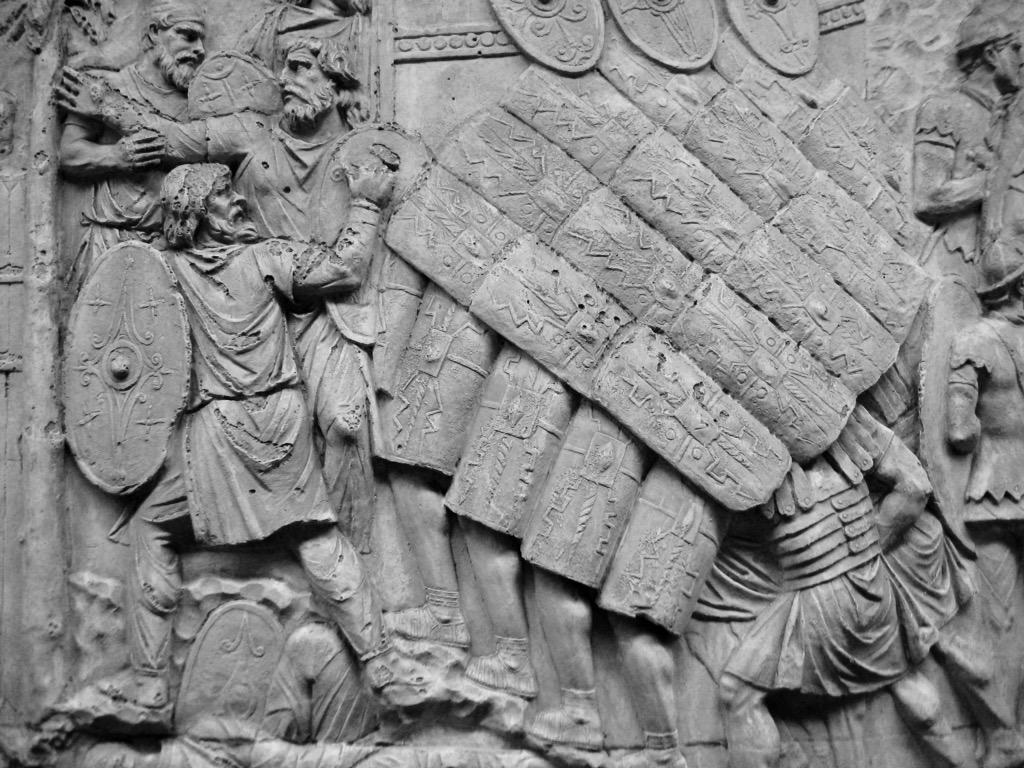
4/4) .."They advance quickly and they give ground slowly. It matters little if they find themselves fewer in number, outclassed in skill or on disadvantageous ground - and they seem never to be lacking in that one ever-elusive quality: luck."
(Josephus, The Jewish War)
(Josephus, The Jewish War)
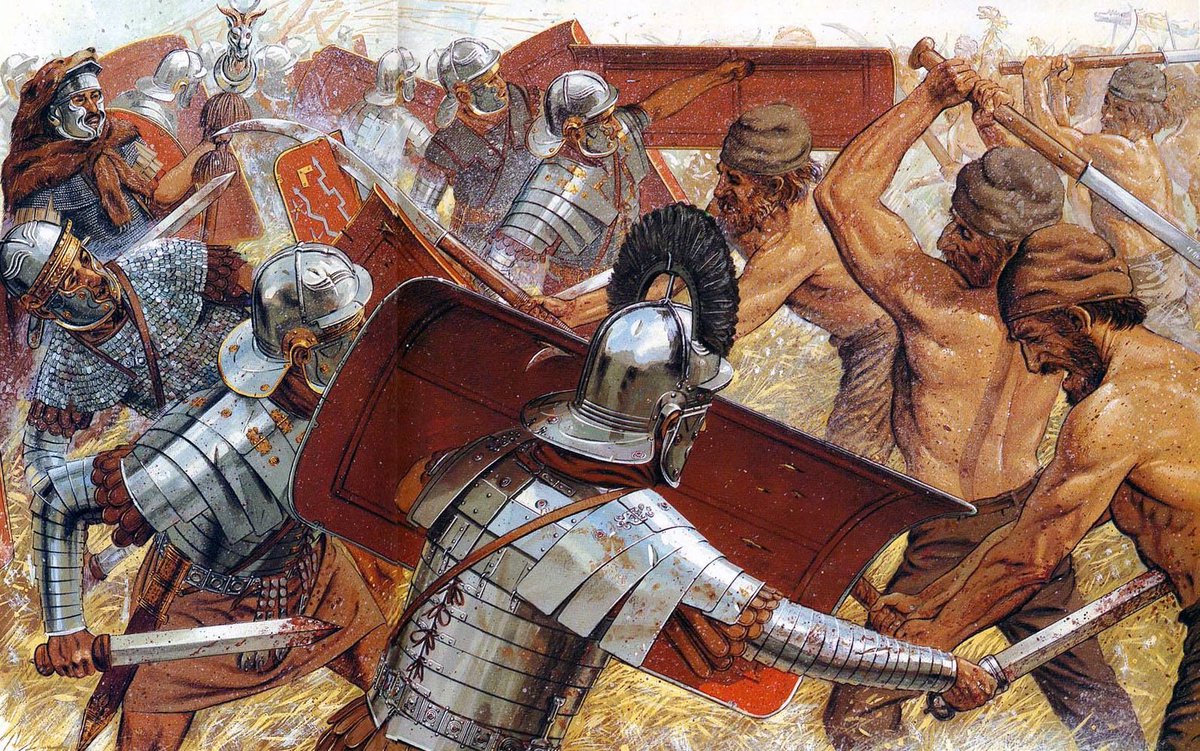
• • •
Missing some Tweet in this thread? You can try to
force a refresh







